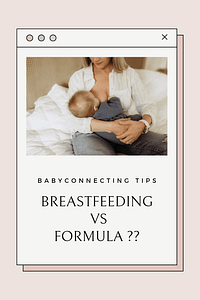The Great Debate: Breastfeeding vs. Formula Feeding – What’s Best for Your Baby?

In the journey of parenthood, one of the most significant decisions parents face is how to nourish their newborn: breastfeeding or formula feeding? This debate has sparked discussions, controversies, and even judgments, but ultimately, the decision rests upon what’s best for the baby and the family’s unique circumstances. Let’s delve into the pros and cons of each option to help you make an informed choice.
Breastfeeding:
Pros:
1. Nutritional Benefits:
Breast milk is often referred to as “liquid gold” for a reason. It contains the perfect balance of nutrients, antibodies, and enzymes tailored to meet your baby’s needs, promoting optimal growth and development.
2. Bonding Experience:
Breastfeeding fosters a unique bond between mother and baby, promoting skin-to-skin contact, eye contact, and closeness that strengthens the emotional connection.
3. Convenience:
Breast milk is always readily available at the perfect temperature, making nighttime feedings and outings easier for mothers.
Cons:
1. Challenges:
While natural, breastfeeding can come with challenges such as sore nipples, engorgement, and difficulty with latch, which may require support and guidance.
2. Time Commitment:
Breastfeeding demands a significant time commitment from the mother, as newborns typically feed every 2-3 hours, including during the night.
Formula Feeding:
Pros:
1. Convenience:
Formula feeding offers flexibility as it allows other caregivers to feed the baby, giving mothers more freedom and opportunities for rest.
2. Predictability:
With formula feeding, you can easily monitor how much your baby is consuming, which can be reassuring for some parents.
3. Ease of Use:
Formula feeding eliminates the physical challenges associated with breastfeeding, making it a viable option for mothers who struggle with breastfeeding or those who need to return to work.
Cons:
1. Cost:
Formula feeding can be expensive, especially if your baby requires specialized formula due to allergies or sensitivities.
2. Lack of Antibodies:
Formula does not provide the same antibodies and immune-boosting properties as breast milk, which may increase the risk of infections and illnesses in infants.
3. Preparation and Storage:
Formula feeding involves preparation, sterilization of bottles, and proper storage, adding extra steps to the feeding process.
In conclusion, both breastfeeding and formula feeding have their advantages and challenges. The decision ultimately depends on factors such as personal preference, health considerations, lifestyle, and support systems. Some mothers may choose to exclusively breastfeed, while others may opt for formula feeding, and many find a combination of both that works best for their family.
Regardless of the feeding method chosen, what matters most is that your baby receives the love, care, and nourishment they need to thrive. Every parent’s journey is unique, and by making an informed decision that aligns with your values and circumstances, you’re setting the foundation for a healthy and fulfilling parenting experience.

